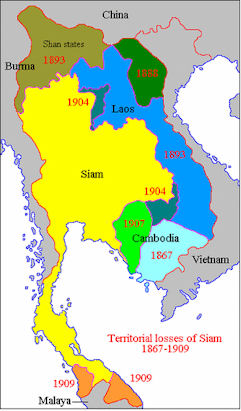

Zitierweise / cite as:
Payer, Alois <1944 - >: Chronik Thailands = กาลานุกรมสยามประเทศไทย. -- Chronik 1842 (Rama III). -- Fassung vom 2016-09-18. -- URL: http://www.payer.de/thailandchronik/chronik1842.htm
Erstmals publiziert: 2013-07-01
Überarbeitungen: 2016-09-18 [Ergänzungen] ; 2016-04-12 [Ergänzungen] ; 2015-10-23 [Ergänzungen] ; 2015-06-18 [Ergänzungen] ; 2015-05-15 [Ergänzungen] ; 2015-05-09 [Teilung des Kapitels] ; 2015-05-08 [Ergänzungen] ; 2015-04-22 [Ergänzungen] ; 2015-03-16 [Ergänzungen] ; 2015-03-04 [Ergänzungen] ; 2015-01-24 [Ergänzungen] ; 2014-12-15 [Ergänzungen] ; 2014-11-13 [Ergänzungen] ; 2014-11-04 [Ergänzungen] ; 2014-10-27 [Ergänzungen] ; 2014-09-21 [Ergänzungen] ; 2014-08-20 [Ergänzungen] ; 2014-03-26 [Ergänzungen] ; 2014-03-08 [Ergänzungen] ; 2014-02-26 [Ergänzungen] ; 2014-01-13 [Ergänzungen] ; 2013-12-20 [Ergänzungen] ; 2013-12-05 [Ergänzungen] ; 2013-11-25 [Ergänzungen] ; 2013-11-05 [Ergänzungen] ; 2013-10-11 [Ergänzungen] ; 2013-09-28 [Ergänzungen] ; 2013-09-23 [Ergänzungen] ; 2013-09-17 [Ergänzungen] ; 2013-09-02 [Ergänzungen] ; 2013-08-23 [Ergänzungen] ; 2013-08-21 [Ergänzungen] ; 2013-08-14 [Ergänzungen] ; 2013-08-11 [Ergänzungen] ; 2013-07-13 [Ergänzungen] ; 2013-07-10 [Ergänzungen] ; 2013-07-08 [Ergänzungen]
©opyright: Dieser Text steht der
Allgemeinheit zur Verfügung. Eine Verwertung in Publikationen, die über übliche
Zitate hinausgeht, bedarf der ausdrücklichen Genehmigung des Herausgebers.
Dieser Text ist Teil der Abteilung
Thailand von
Tüpfli's Global Village Library
ช้างตายทั้งตัวเอาใบบัวปิดไม่มิด
|
Gewidmet meiner lieben Frau Margarete Payer die seit unserem ersten Besuch in Thailand 1974 mit mir die Liebe zu den und die Sorge um die Bewohner Thailands teilt. |
|
Bei thailändischen Statistiken muss man mit allen Fehlerquellen rechnen, die in folgendem Werk beschrieben sind:
Die Statistikdiagramme geben also meistens eher qualitative als korrekte quantitative Beziehungen wieder.
|
1842 - 1856
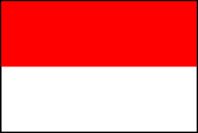
Sultan Phraya Long Muhammad Ibni Raja Muda Kelantan/Raja Kampong Laut Tuan Besar Long Ismail Ibni Raja Long Yunus ist Sultan (سلطان) von Patani (ڤتاني)
Abb.: Lage des Sultanats von Patani (كراجأن ڤتاني)
[Bildquelle: Xufanc / Wikimedia. -- Creative Commons Lizenz (Namensnennung, share alike)]]
1842 - 1843
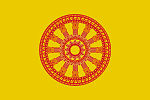
Fünf Reformmönche Mongkuts unter Leitung von Phra Sudhamuni begleiten die ceylonesischen Mönche, die 1840 nach Siam gekommen waren, nach Ceylon (Sri Lanka), besuchen dort heilige Städten und bringen 50 Bände des buddhistischen Tipiṭaka als Leihgabe mit.
1842/1846
Die Pacht für die Steuerhebung auf Tabak beträgt in Ayutthaya (อยุธยา) 400 Baht (d.h. es gibt mindestens 400.000 Tabakpflanzen). Tabaksteuer darf nur auf Tabakpflanzen erhoben werden, die in den Handel gehen, nicht auf bis zu 10 Pflanzen für den persönlichen Gebrauch.
Abb.: Lage von Ayutthaya (อยุธยา)
[Bildquelle: OpenStreetMap. -- Creative Commons Lizenz (Namensnennung, share alike)]
Abb.: Tabakpflanze (Nicotiana tabacum) / von Francisco Manuel Blanco
[Bildquelle: Flora de Filipinas 1880 / Wikimedia. -- Public domain]
In Ayutthaya gibt es vier Eisenkanonen auf drei Füßen sowie 50 Steinschloss-Vorderlader, 15 der Vorderlader hat der Gouverneur für die Armee requiriert.
Abb.: Kanonen auf drei Füßen, Thailand, 2005
[Bildquelle: Starbuck Powersurge. -- http://www.flickr.com/photos/97654705@N00/139964768. -- Zugriff am 2013-06-04. -- Creative Commons Lizenz (Namensnennung, keine kommerzielle Nutzung, keine Bearbeitung)]
Abb.: Wirkungsweise eines Steinschlosses
[Quelle des animated gif: BBOD / Wikimedia. -- Creative Commons Lizenz (Namensnennung, share alike)]
1842
Die Pacht für das Recht, in Bangkok Steuern auf Glücksspiele zu erheben und Glücksspiel-Stätten zu bewilligen, beträgt 91.200 Baht.
1842/1843
Gefälschte Münzen werden im Umlauf gefunden.
1842
Teochew-Chinesen (潮州人) errichten im Samsen-Distrikt (สามเสน) einen Schrein für Chao Mae Tuptim (เจ้า แม่ ทับทิม). Dies ist wohl der erste solcher Schreine. Thai-Wikipedia zählt 20 solcher Schreine in Thailand auf.
Abb.: Chao-Mae-Tuptim-Schrein (ศาลเจ้าแม่ทับทิม) hinter dem Hilton-Hotel, Bangkok, 2008
[Bildquelle: duucfho. -- http://www.flickr.com/photos/63979424@N00/2296714315/. -- Zugriff am 2012-03-07. -- Creative Commons Lizenz (Namensnennung, keine kommerzielle Nutzung, share alike)]
Abb.: Chao-Mae-Tuptim-Schrein (ศาลเจ้าแม่ทับทิม), Uttaradit (อุตรดิตถ์)
[Bildquelle: Canton / th.Wikipedia. -- GNU FDLicense]
1842-04
Revolte der chinesischen Triaden (三合會) in Nakorn Chaisi (นครชัยศรี) und Sakhon Buri (สาครบุรี = Mueang Samut Sakhon - เมืองสมุทรสาคร). In Nakhon Chaisi und Sakhonburi gibt es drei chinesische Räuber-Banden mit je ca. 1000 Mitgliedern:
Chin Eia
Chin Kim
Chin Piew
Die Revolte wird mit Hilfe von Phra Sombat-wanit (พระสมบัติวานิช), einem Chinesen, niedergeschlagen
Abb.: Lage von Nakorn Chaisi (นครชัยศรี) und Sakhonburi (สาครบุรี)
[Bildquelle: OpenStreetMap. -- Creative Commons Lizenz (Namensnennung, share alike)]
"Im April 1842 gab es Probleme zwischen drei Gruppen von Chinesen, die Geheimgesellschaften gebildet hatten und jeweils etwa 1.000 Männer umfassten. Die Anführer dieser Gruppen hießen Khim, Ia und Phiao (Piaw). Die siamesische Regierung sandte unter den Kommando Phra Sombat Wanit Soldaten, um die Anführer zu verhaften. Tatsächlich konnten zunächst Khim und Phiao in den Kerker geworfen werden, doch konnte Ia fliehen. Er raubte anschließend zusammen mit seinen Leuten die Häuser der Gegend um Samut Sakhon und Nakhon Pathom aus. Sie konnten erst nach einer großen Polizeiaktion überwältigt werden." [Quelle: https://de.wikipedia.org/wiki/Samut_Sakhon. -- Zugriff am 2015-06-18]
1842

Chaophraya Bodin berichtet Rama III., dass in Kambodscha schon zwei Jahre lang die Reisfelder nicht mehr bearbeitet wurden, dass die Bevölkerung im Wald nach Bambus-Schossen und Yams zum Essen suchen, und dass selbst in der Armee 1000 Personen an Hunger gestorben sind.
1842
สุนทรภู่ [Sunthon Phu] <1786 - 1855>: นิราศพระประธม [Reise-Gedicht (Nirat - นิราศ) über seine Pilger-Reise zum Chedi Phra Pathom (พระปฐมเจดีย์).
Abb.: Lage des Chedi Phra Pathom (พระปฐมเจดีย์)
[Bildquelle: OpenStreetMap. -- Creative Commons Lizenz (Namensnennung, share alike)]
Abb.: Chedi Phra Pathom (พระปฐมเจดีย์). o. J.
Abb.: Einbandtitel einer modernen Ausgabe
"At the edge of the village is the villagers’ spirit-house
Where they are making offerings of propitious rice.
Seeing spirit mediums, I feel how wretched they are.
They lure people to swallow their tricks
By dishonestly saying the gods will help them.
I do not think that the people will get what they want.
Even if the spirit consents to help, things may turn out different.It is better to depend on the patronage of nobles."[Übersetzung: Nidhi Eoseewong [นิธิ เอียวศรีวงศ์] <1940 - >: Pen and sail : literature and history in early Bangkok including the history of Bangkok in the chronicles of Ayutthaya. -- Chiang Mai : Silkworm, 2005. -- 396 S. : Ill. ; 23 cm. -- ISBN 974957592X. -- Originaltitel: ปากไก่และใบเรือ : รวมความเรียงว่าด้วยวรรณกรรม และประวัติศาสตร์ต้นรัตนโกสินทร์ (1984). -- S. 176. -- Fair use]
สุนทรภู่ [Sunthon Phu] <1786 - 1855>: รำพันพิลาป [Wehklagen]
Abb.: Einbandtitel einer modernen Ausgabe
1842

สมเด็จพระมหาสมณเจ้า กรมพระปรมานุชิตชิโนรส [Paramanuchit Chinorot] <1790 - 1853>: ฉันท์ดุษฏีสังเวยกล่อมช้างพัง [Gedicht zur Besänftigung von Elefantenkühen]
สมเด็จพระมหาสมณเจ้า กรมพระปรมานุชิตชิโนรส [Paramanuchit Chinorot] <1790 - 1853>: กาพย์ขับไม้กล่อมช้างพัง [Gesang zur Beruhigung von Elefantenkühen]
สมเด็จพระมหาสมณเจ้า กรมพระปรมานุชิตชิโนรส [Paramanuchit Chinorot] <1790 - 1853>: ฉันท์สังเวยกลองวินิจฉัยเภรี [Opfer an die Winichai pheri Trommel]
สมเด็จพระมหาสมณเจ้า กรมพระปรมานุชิตชิโนรส [Paramanuchit Chinorot] <1790 - 1853>: ฉันท์มาตราพฤติ [Über das Chan-Versmaß]
สมเด็จพระมหาสมณเจ้า กรมพระปรมานุชิตชิโนรส [Paramanuchit Chinorot] <1790 - 1853>: ฉันท์วรรณพฤติ [Über das Chan-Versmaß]
สมเด็จพระมหาสมณเจ้า กรมพระปรมานุชิตชิโนรส [Paramanuchit Chinorot] <1790 - 1853>: ลิลิตจักรทีปนี (เป็นตำราโหราศาสตร์) [Über Astrologie, im Likit-Versmaß]
1842

"Good Success"-Streitigkeiten des britischen Kaufmanns Robert Hunter ( - 1848)
"Then in 1842, the trouble referred to regarding the “Good Success” arose. Hunter had contracted to buy 2 to 3000 piculs [擔; 1 picul= ca. 60 kg] sugar from dealers at 7 to 7½ ticals a picul, but by an order then issued by the authorities, sugar could only be purchased from the Royal stores. After a good deal of trouble the “Good Success” was loaded with sugar from the King’s store at Tcs. 9½ per picul. The same regulation regarding sugar was enforced in the following season, 1843, but the crop being large that year the firm wore able to buy from the authorities at Tcs. 8¾ a picul, as compared with the dealers’ selling rate of Tcs. 7½. In the season of 1844 the right of dealing in sugar was farmed to two Chinese, who paid Tcs. 2 a picul for the privilege, and half a tical duty per picul. The average price that season was Tcs. 7 —7½ Hunter alleged that the exporters lost by means of this monopoly something like Tcs. 275,000, most of which fell on the trade of British subjects. Hunter’s second grievance was that at the request of the King he had procured and brought out to Bangkok “at great expense and risk" the steamer “ Express, ” which the King failed to take delivery of. It was in this steamer Hunter eventually left Siam direct for Calcutta, “to claim of the Supreme Government not only that protection to person and property to which British traders are entitled by the positive terms of the treaties made with your Lordship’s predecessors in June 1826, but also redress for a manifest breach of those treaties which stipulated for a direct commerce between British subjects and the subjects of Siam without intervention of the State or its agents, in consideration of a consolidated measurement duty on their vessels entering the port of Siam. ”
The Under Secretary to the Government of India in preparing a memorandum on Hunter’s memorial pointed out: —
“From the treaties in force it does not by any means appear that any interference was intended with the King or that he should be prevented from monopolising any product of his dominions or granting such monopoly to any persons should he be so disposed....The half tical levied from the sugar dealers for their monopoly by the King which goes under the name of duty as stated by Mr. Hunter can be considered no infraction of the treaty, for it is not levied from them because they sell to the English, but it is the sum paid by them for their monopoly to whomsoever they may choose to sell it. But it must be remembered that Mr. Hunter’s differences with the King of Siam appear to have originated not so much on account of the sugar monopoly, which had been going on for two years previously without complaint on the part of Mr. Hunter, but on account of the steamer “Express.” Until we are made aware of the whole circumstances of that transaction, whether the King furnished the funds for the purchase of the vessel, it is not possible to say whether the King may not have some just claim against Mr. Hunter.”
The Commissioner at Moulmein [မတ်မလီု], asked for his opinion regarding the dispute, reported that
“the King and the nobles are traders, so is Mr. Hunter, who had for many years great influence with the Court. This he has now lost, and instead of being in some sort partners, he and the Ministers or King have become rivals in trade. ”
Hunter claimed to have abandoned property to the amount of three lakhs [1 lakh = 100.000] of rupees when he left Bangkok to go to Calcutta [কলকাতা], but he had left a European in charge, one Mr. Harvey. Mr. Hayes (locally known as Samian Jim) was at home at this time. Hunter returned to Penang from Calcutta, where he explained in detail his grievances, and then went back to Siam. It has been suggested that this Steamer “Express” was brought out partly in view of a possible conflict between the Siamese and the British. This possibility was mooted at Bangkok, where it was thought that after the British had settled affairs with China, they might pay Siam a visit. Every preparation was made to effect a show of resistance. The fortifications at the entrance to the river were repaired, chain cables stretched across the river, and a large supply of guns ordered from England through Hunter and Hayes, as also the steamer “Express.” The peaceable return of the British troops to India on the conclusion of the peace with China changed the King's view on the subject of the ordnance and steamer commissioned from Hunter and Hayes. Apparently Hunter then lost his temper and informed the Siamese that he would sell the steamer to the Cochin-Chinese, with whom the Siamese were on hostile terms, and this impolitic speech led to a request for his removal. Hunter left as we have seen and took the “Express” to Calcutta and on his return to Singapore handed her over to the Cochin-Chinese for the sum of 53, 000 dollars. The guns and mortars ordered were also disposed of, together with a quantity of iron and sundry goods, bringing down Hunter's estimated losses from three lakhs to under one.
The Governor of Prince of Wales Island [Penang] reported that it did not appear that the King had openly thrown any obstacles in the way of Hunter to retard the recovery of his debts,
“although the withdrawal of the King’s countenance from a former favourite would doubtless indirectly tend to this end ...... When it was remembered
that Mr. Hunter was looked upon and treated with the greatest kindness for a long period of years by the King and Court, the exasperated feelings of the King upon being told that negotiations would be entered into with his enemies are not to be wondered at. On the other hand had the Chinese war continued I am satisfied that the steamer and military stores would have been purchased without a murmur, but arriving as they did when their necessity appeared no longer urgent the King wished to obtain them below their estimated value, or considerably under the sum agreed for, and it was while smarting under this ungenerous proceeding that Mr. Hunter expressed himself in the unguarded manner referred to. ”Hunter continued to try and get the support of the Governor while he stayed at Singapore, stating that advices he had received from Bangkok showed that Mr. Harvey (then in charge of the firm) wrote in a strain of the greatest personal alarm. The Governor replied that he had no doubt the novel situation of Mr. Harvey, who he learnt was a very young man, could be anything but agreeable, and he thought it was to be lamented that he was left behind in such circumstances.....He did not think, however, there were sufficient grounds at present (March 1844) to warrant any movement on his part. In a further communication to the Governor of Prince of Wales Island, Hunter stated that after the sale of the “Express” he chartered the schooner “Venus” and sailed again for Bangkok on June 20th, 1844. He arrived in Bangkok in the middle of July and went to see the Phra Klang [พระคลัง]. Hunter according to his own statement was received very coolly, and the Minister enquired why he had returned to Siam. The Phra Klang added that it was understood that the object of Hunter’s journey to Bengal was to complain against the King, but that he was too little a man for the Governor of Bengal to take any notice of. The Phra Klang also added that as he (Hunter) had sold the “Express" to the Cochin-Chinese he had better go to Cochin China himself and get them another steamer. When Hunter applied for a pass to permit the schooner to leave Bangkok to return to Singapore, he was informed that it would not be granted unless he left with the ship, and he was obliged to consent to this, and ten days after his arrival in Siam, he returned to Singapore by the “Venus,” having obtained permission to return with a large vessel to remove his property.
On arriving at Singapore Hunter chartered the ‘‘Gunga” and immediately returned to Siam. When the "Gunga” was half laden, it was His Majesty’s intention to visit the temples and the “Gunga” was told she must go outside. This was done, and the ship continued loading by small junks. Hunter was also informed that he must go down the river while the King was afloat, and he remained away from Bangkok for three days. Later Hunter states in a further memorial the Phra Klang came to his house late one evening and stated Hunter must go down the river and remain outside the bar. Hunter accordingly, after some demur, left in a small boat in the middle of the night with young Mr. Christopher Harvey and reached the “Gunga” safely. Remaining on board for several days, Hunter again essayed to come to Bangkok, but was met at the river month and told he could not return until the King gave permission. Hunter does not categorically state whether he did come to Bangkok again, but it is probable he did. He finally left the country on 29th December 1844, leaving Christopher Harvey for a short time to try and collect some of his debts. In his memorial he put his outstandings at 40,000 Spanish dollars besides which he claimed to have suffered heavy losses from a large quantity of goods having been returned to him by parties to whom he had sold them.
To a later memorial, dated 6th February, 1845, the Indian Government replied ( 10th Aug, 1845),“as the circumstances mentioned in Mr. Hunter’s memorial do not differ materially from those on which the decision of the Government on the former occasion was based, it was considered unnecessary without further instructions from the Court of Directors of the East India Company to take any notice of the representation submitted by that individual, or to reopen the question of infraction in connection therewith, notwithstanding the adverse opinion recorded by the Law Commission in their report. ”
The opinion of the Law Commission, it may be added, has not yet been found. A letter from the Court of Directors addressed from London, 2nd January 1846, to the Governor and Council of Bengal stated
“with respect to the personal injuries complained of by Mr. Hunter, they appear to have been in some measure provoked by his own imprudence; and there would probably have been difficulty in establishing the facts in such a manner as to entitle your Government to make a public demand of redress on his behalf. We approve, therefore, of your non-interference. The general question remains whether the King’s assumption of a monopoly of sugar is an infringement of the treaty. You referred the question to the Law Commission, who are of opinion that it is so. Major Broadfoot is of a contrary opinion, and you have determined not to interfere. Monopolies being a frequent and even habitual resource of the Siamese Government for purposes of revenue, we cannot but think that, if the Government had intended to bind itself never to re-establish them, an express opinion to that effect would have been inserted in the treaty. Without distinct proof in the correspondence at the time that such was the intention of the negotiations, we do not think our right of remonstrance sufficiently clear to induce us to exert it.”
As far as can be ascertained nothing further was done by Hunter to prosecute his claims, and probably the dispute was then dropped, after being under discussion for about three years. There is no doubt that, despite his losses, Hunter had done very well in his twenty years trading with the Siamese, and he went home. As far as we know, Hunter stood well with the British authorities both at Prince of Wales Island [Penang] and in India up to the time of his falling out with the Siamese. Capt. Burney [Henry Burney, 1792-1845) was glad to avail himself of his services during his Mission in 1826, and indeed Hunter was present, at Captain Burney’s personal request, when the Mission were received in audience by His Majesty. He was also useful to the Indian Government on the occasion of Dr. Richardson’s [David Richardson, 1796 - 1846] overland journey from Moulmein [မတ်မလီု] to Bangkok in 1839, and on the occasion of the decision of the King of Siam to restore the expelled Rajah of Kedah [قدح] to his territory.
“No British authority took part in the negotiation, ” a minute of the Court of Directors held in London 30th December 1842 states, “ but it is considered to have been much aided by the good offices of Mr. Hunter, ”
to whom a present of 5000 dollars was made in conformity with expectations previously held out. For these services Hunter received the thanks of the successive Governors General at these periods. Hunter had the Siamese title of Luang Avudh Viset, conferred principally in recognition of his gift of muskets."
[Quelle: Moore, R. Adey: An early British merchant in Bangkok. -- In: Journal of the Siam Society. -- 11,2 (1914/15). -- S. 29 - 34]
1842


Es erscheint:
Jones, Eliza G. (Eliza Grew) <1803 - 1838>: Memoir. -- Philadelphia : American Baptist Publication and Sunday School Society, 1842. -- 172 S.
Abb.: Titelblatt
1842
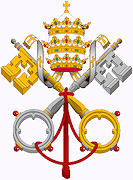
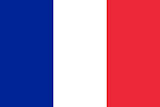
Es erscheint
Pallegoix, Jean-Baptiste <1805 - 1862>: Manuel de prières pour l'archiconfrérie. -- Bangkok, 1842
1842

Das Dampfschiff SS Hindostan eröffnet den Linienpostdienst der Peninsular and Oriental Steam Navigation Company (P & O) von Suez nach Kolkatta (Bengalen). Das Schiff sinkt 1864 bei einem Sturm in Kolkatta.
Abb.: SS Hindostan bei ihrer Jungfernfahrt 1842
1842
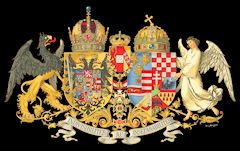
Es erscheint:
Hus, Augusto <fl. 1827-1853>: Der Schiffbruch der Medusa : mimisches Ballet in 5 Abtheilungen mit einem Vorspiele ; für das k. k. Hoftheater nächst dem Kärnthnerthore / erfunden und in die Scene gesetzt von Herrn A. Hus, Balletmeister am k. k. Hoftheater nächst dem Kärnthnerthore in Wien. -- Wien : Ullrich, 1842. -- 8 S.
Abb.: Titelblatt
"Erste Abteilung Personen
- Der König von Siam
- Der Befehlshaber der Medusa
- ....
Schauplatz: In den ersten zwei Abteilungen in Siam, in den übrigen im indischen Meere, in der Nähe von Sumatra.
Zeit: Das Jahr 1816"
[a.a.O., S. 3]
1842-01-01

Großbritannien muss nach Vernichtung seiner ganzen Armee (15.000 Mann) den Versuch aufgeben, Afghanistan zu erobern.
1842-02-28 - 1844-06

The Lord Ellenborough (1790 - 1871) ist Governor-General of India
1842-07

Es erscheint:
Chadwick, Edwin <1800 - 1890>: Report to Her Majesty's Principal Secretary of State for the Home Department, from the Poor Law Commissioners, on an inquiry into the sanitary condition of the labouring population of Great Britain ; with appendices. -- London, 1842. -- (House of Lords Sessional Papers ; Session 1842. vol. 26-28)
Abb.: Titelblatt
"First, as to the extent and operation of the evils which are the subject of this inquiry: —
- That the various forms of epidemic, endemic, and other disease caused, or aggravated, or propagated chiefly amongst the labouring classes by atmospheric impurities produced by decomposing animal and vegetable substances, by damp and filth, and close and overcrowded dwellings prevail amongst the population in every part of the kingdom, whether dwelling in separate houses, in rural villages, in small towns, in the larger towns — as they have been found to prevail in the lowest districts of the metropolis.
- That such disease, wherever its attacks are frequent, is always found in connexion with the physical circumstances above specified, and that where those circumstances are removed by drainage, proper cleansing, better ventilation, and other means of diminishing atmospheric impurity, the frequency and intensity of such disease is abated; and where the removal of the noxious agencies appears to be complete, such disease almost entirely disappears.
The high prosperity in respect to employment and wages, and various and abundant food, have afforded to the labouring classes no exemptions from attacks of epidemic disease, which have been as frequent and as fatal in periods of commercial and manufacturing prosperity as in any others.
- That the formation of all habits of cleanliness is obstructed by defective supplies of water.
- That the annual loss of life from filth and bad ventilation are greater than the loss from death or wounds in any wars in which the country has been engaged in modern times.
- That of the 43,000 cases of widowhood, and 112,000 cases of destitute orphanage relieved from the poor's rates in England and Wales alone, it appears that the greatest proportion of deaths of the heads of families occurred from the above specified and other removable causes; that their ages were under 45 years; that is to say, 13 years below the natural probabilities of life as shown by the experience of the whole population of Sweden.
- That the public loss from the premature deaths of the heads of families is greater than can be represented by any enumeration of the pecuniary burdens consequent upon their sickness and death.
- That, measuring the loss of working ability amongst large classes by the instances of gain, even from incomplete arrangements for the removal of noxious influences from places of work or from abodes, that this loss cannot be less than eight or ten years.
- That the ravages of epidemics and other diseases do not diminish but tend to increase the pressure of population.
- That in the districts where the mortality is greatest the births are not only sufficient to replace the numbers removed by death, but to add to the population.
- That the younger population, bred up under noxious physical agencies, is inferior in physical organization and general health to a population preserved from the presence of such agencies.
- That the population so exposed is less susceptible of moral influences, and the effects of education are more transient than with a healthy population.
- That these adverse circumstances tend to produce an adult population short-lived, improvident, reckless, and intemperate, and with habitual avidity for sensual gratifications.
- That these habits lead to the abandonment of all the conveniences and decencies of life, and especially lead to the overcrowding of their homes, which is destructive to the morality as well as the health of large classes of both sexes.
- That defective town cleansing fosters habits of the most abject degradation and tends to the demoralization of large numbers of human beings, who subsist by means of what they find amidst the noxious filth accumulated in neglected streets and bye-places.
- That the expenses of local public works are in general unequally and unfairly assessed, oppressively and uneconomically collected, by separate collections, wastefully expended in separate and inefficient operations by unskilled and practically irresponsible officers.
- That the existing law for the protection of the public health and the constitutional machinery for reclaiming its execution, such as the Courts Leet, have fallen into desuetude, and are in the state indicated by the prevalence of the evils they were intended to prevent. "
[a.a.O. -- Zitiert: http://www.victorianweb.org/history/chadwick2.html. -- Zugriff am 2015-10-26]
1842-08-18
Sultan Omar Ali Saifuddin II (1827–1852), Sultan von Brunei, ernennt den Briten James Brooke (1803 - 1868) zum Rajah (König) von Sarawak. Brooke regiert dort bis zu seinem Tod 1868, dann wird sein Neffe Rajah, auf diesen folgt dessen Sohn (Brooke-Dynastie).
Abb.: Wappen des Königreichs Sarawak
[Bildquelle: IvY88 / Wikimedia. -- Public domain]
Abb.: Lage von Brunei und Sarawak
[Bildquelle: Bartholomew, J. G. <1860 - 1920>: A literary & historical atlas of Asia. -- London, o. J.]
1842-08-29


Mit dem Vertrag von Nanjing (南京條約) wird der Erste Opiumkrieg zwischen China und Großbritannien beendet. China muss weitgehende Zugeständnisse machen. Dadurch, dass nun europäische Schiffe chinesische Häfen anlaufen können, verliert Siam das Handelsmonopol, das es als Tributstaat Chinas hatte.
Abb.: Durch den Vertrag von Nanjing für den Handel geöffnete Häfen Chinas
[Bildquelle: Dr. Meierhofer / Wikipedia. -- Public domain]
Treaty of Nanking
Nanking, August 29, 1842
Peace Treaty between the Queen of Great Britain and the Emperor of China
Ratifications exchanged at Hongkong, 26th June 1843 (1842)HER MAJESTY the Queen of the United Kingdom of Great Britain and Ireland, and His Majesty the Emperor of China, being desirous of putting an end to the misunderstandings and consequent hostilities which have arisen between the two countries, have resolved to conclude a Treaty for that purpose, and have therefore named as their Plenipotentiaries, that is to say: Her Majesty the Queen of Great Britain and Ireland, HENRY POTTINGER, Bart., a Major General in the Service of the East India Company, etc., etc.; And His Imperial Majesty the Emperor of China, the High Commissioners KEYING, a Member of the Imperial House, a Guardian of the Crown Prince and General of the Garrison of Canton; and ELEPOO, of Imperial Kindred, graciously permitted to wear the insignia of the first rank, and the distinction of Peacock's feather, lately Minister and Governor General etc., and now Lieutenant-General Commanding at Chapoo: Who, after having communicated to each other their respective Full Powers, and found them to be in good and due form, have agreed upon and concluded the following [selected] Articles:
Article I. There shall henceforward be peace and friendship between Her Majesty the Queen of the United Kingdom of Great Britain and Ireland and His Majesty the Emperor of China, and between their respective subjects, who shall enjoy full security and protection for their persons and property within the dominions of the other.
Article II. His Majesty the Emperor of China agrees, that British subjects, with their families and establishments, shall be allowed to reside, for the purposes of carrying on their mercantile pursuits, without molestation or restraint, at the cities and towns of Canton, Amoy, Foochowfoo, Ningpo, and Shanghai; and Her Majesty the Queen of Great Britain, &c., will appoint Superintendents, or Consular officers, to reside at each of the above-named cities or towns, to be the medium of communication between the Chinese authorities and the said merchants, and to see that the just duties and other dues of the Chinese Government, as hereafter provided for, are duly discharged by Her Britannic Majesty's subjects.
Article III. It being obviously necessary and desirable that British subjects should have some port whereat they may [maintain] and refit their ships when required, and keep stores for that purpose, His Majesty the Emperor of China cedes to Her Majesty the Queen of Great Britain, &c., the Island of Hong-Kong, to be possessed in perpetuity by Her Britannic Majesty, her heirs and successors, and to be governed by such laws and regulations as Her Majesty the Queen of Great Britain, &c., shall see fit to direct.
Article IV. The Emperor of China agrees to pay the sum of Six Millions of dollars, as the value of the opium which was delivered up at Canton in the month of March, 1839, as a ransom for the lives of Her Britannic Majesty's Superintendent and subjects, who had been imprisoned and threatened with death by the Chinese High Officers
Article V. The Government of China having compelled the British merchants trading at Canton to deal exclusively with certain Chinese merchants, called Hong merchants (or Cohong), who had been licensed by the Chinese Government for that purpose, the Emperor of China agrees to abolish that practice in future at all ports where British merchants may reside, and to permit them to carry on their mercantile transactions with whatever persons they please; and His Imperial Majesty further agrees to pay to the British Government the sum of Three Millions of dollars, on account of debts due to British subjects by some of the said Hong merchants (or Cohong), who have become insolvent, and who owe very large sums of money to subjects of Her Britannic Majesty.
Article VI. The Government of Her Britannic Majesty having been obliged to send out an expedition to demand and obtain redress for the violent and unjust proceedings of the Chinese High Authorities towards Her Britannic Majesty's officer and subjects, the Emperor of China agrees to pay the sum of Twelve Millions of dollars, on account of the expenses incurred; and Her Britannic Majesty's Plenipotentiary voluntarily agrees, on behalf of Her Majesty, to deduct from the said amount of Twelve Millions of dollars, any sums which may have been received by Her Majesty's combined forces, as ransom for cities and towns in China, subsequent to the 1st day of August, 1841.
Article VII. It is agreed, that the total amount of Twenty-One Millions of dollars, described in the three preceding Articles, shall be paid as follows:-
Six Millions immediately.
Six Millions in 1843. That is:- Three Millions on or before the 30th of the month of June, and 3,000,000 on or before the 31st of December.
Five Millions in 1844. That is:- Two Millions and a half on or before the 30th of June, and 2,500,000 on or before the 31st of December.
Four Millions in 1845. That is:- Two Millions on or before the 30th of June, and Two Millions on or before the 31st of December; and it is further stipulated, that Interest, at the rate of 5 per cent per annum, shall be paid by the Government of China on any portion of the above sums that are not punctually discharged at the periods fixed.
Article VIII. The Emperor of China agrees to release, unconditionally, all subjects of Her Britannic Majesty (whether Natives of Europe or India), who may be in confinement at this moment in any part of the Chinese empire.
Article IX. The Emperor of China agrees to publish and promulgate, under his Imperial sign manual and seal, a full and entire amnesty and act of indemnity to all subjects of China, on account of their having resided under, or having had dealings and intercourse with, or having entered the service of Her Britannic Majesty, or of Her Majesty's officers; and His Imperial Majesty further engages to release all Chinese subjects who may be at this moment in confinement for similar reasons.
Article X. His Majesty the Emperor of China agrees to establish at all the ports which are, by the 2nd Article of this Treaty, to be thrown open for the resort of British merchants, a fair and regular tariff of export and import customs and other dues, which tariff shall be publicly notified and promulgated for general information; and the Emperor further engages, that when British merchandise shall have once paid at any of the said ports the regulated customs and dues, agreeable to the tariff to be hereafter fixed, such merchandise may be conveyed by Chinese merchants to any province or city in the interior of the Empire of China, on paying a further amount as transit duties, which shall not exceed [see Declaration respecting Transit Duties below] on the tariff value of such goods.
Article XI. It is agreed that Her Britannic Majesty's Chief High Officer in China shall correspond with the Chinese High Officers, both at the Capital and in the Provinces, under the term "Communication" 照會. The Subordinate British Officers and Chinese High Officers in the Provinces under the terms "Statement" 申陳 on the part of the former, and on the part of the latter "Declaration" 劄行, and the Subordinates of both Countries on a footing of perfect equality. Merchants and others not holding official situations and, therefore, not included in the above, on both sides, to use the term "Representation" 稟明 in all Papers addressed to, or intended for the notice of the respective Governments.
Article XII. On the assent of the Emperor of China to this Treaty being received, and the discharge of the first instalment of money, Her Britannic Majesty's forces will retire from Nanking and the Grand Canal, and will no longer molest or stop the trade of China. The military post at Chinhai will also be withdrawn, but the Islands of Koolangsoo, and that of Chusan, will continue to be held by Her Majesty's forces until the money payments, and the arrangements for opening the ports to British merchants, be completed.
Article XIII. The ratification of this Treaty by Her Majesty the Queen of Great Britain, &c., and His Majesty the Emperor of China, shall be exchanged as soon as the great distance which separates England from China will admit; but in the meantime, counterpart copies of it, signed and sealed by the Plenipotentiaries on behalf of their respective Sovereigns, shall be mutually delivered, and all its provisions and arrangements shall take effect.
Done at Nanking, and signed and sealed by the Plenipotentiaries on board Her Britannic Majesty's ship Cornwallis, this 29th day of August, 1842, corresponding with the Chinese date, twenty-fourth day of the seventh month in the twenty-second Year of TAOU KWANG.
(L.S.) HENRY POTTINGER. [SIGNATURES OF THE THREE CHINESE PLENIPOTENTIARIES] 南京條約》 / 《江寧條約》
清政府、英國
1842年8月29日茲因大清大皇帝,大英君主,欲以近來不和之端解釋,息止肇衅,為此議定設立永久和約。是以大清大皇帝特派欽差便宜行事大臣太子少保鎮守廣東廣州將軍宗室耆英,頭品頂戴花翎前閣督部堂乍浦副都統紅帶子伊里布;大英伊耳蘭等國君主特派欽奉全權公使大臣英國所屬印度等處三等將軍世襲男爵璞鼎查;公同各將所奉之上諭便宜行事及敕賜全權之命互相較閱,俱屬善當,即便議擬各條,陳列於左:
一、嗣後大清大皇帝、大英國君主永存平和,所屬華英人民彼此友睦,各住他國者必受該國保佑身家全安。
二、自今以後,大皇帝恩准英國人民帶回所屬家眷,寄居沿海之廣州、福州、廈門、寧波、上海等五處港口,貿易通商無礙;英國君主派設領事、管事等官住該五處城邑,專理商賈事宜,與各該地方官公文往來;令英人按照下條開敘之例,清楚交納貨稅、鈔餉等費。
三、因大英商船遠路涉洋,往往有損壞須修補者,自愿給予沿海一處,以便修船及存守所用物料。今大皇帝准將香港一島給予大英國君主暨嗣後世襲主位者常遠主掌,任便立法治理。
四、因欽差大臣等於道光十九年二月間將英國領事官及民人等強留粵省,嚇以死罪,索出鴉片以為贖命,今大皇帝准以洋銀六百萬圓償補原價。
五、凡英國商民在粵貿易,向例全歸額設行商,亦稱公行者承辦,今大皇帝准其嗣後不必仍照向例,凡有英商等赴各該口貿易者,勿論與何商交易,均聽其便;且向例額設行商等內有累欠英商甚多無措清還者,今酌定洋銀三百萬圓,作為商欠之數,由中國官為償還。
六、欽差大臣等向英國官民人等不公強辦,致須撥發軍士討求伸理,今酌定水陸軍費洋銀一千二百萬圓,大皇帝准為償補,惟自道光二十一年六月十五日以後,英國在各城收過銀兩之數,按數扣除。
七、以上酌定銀數共二千一百萬圓:
此時交銀六百萬圓;
癸卯年六月間交銀三百萬圓,十二月間交銀三百萬圓,共銀六百萬圓;
甲辰年六月間交銀二百五十萬圓,十二月間交銀二百五十萬圓,共銀五百萬圓;
乙巳年六月間交銀二百萬圓,十二月間交銀二百萬圓,共銀四百萬圓;
自壬寅年起至乙巳年止,四年共交銀二千一百萬圓。
倘按期未能交足,則酌定每年每百圓應加息五圓。八、凡系英國人,無論本國、屬國軍民等,今在中國所管轄各地方被禁者,大皇帝准即釋放。
九、凡系中國人,前在英人所據之邑居住者,與英人有來往者,或有跟隨及侍候英國官人者,均由大皇帝俯降諭旨,謄錄天下,恩准免罪;凡係中國人,為英國事被挐禁者,亦加恩釋放。
十、前第二條內言明開關俾英國商民居住通商之廣州等五處,應納進口、出口貨稅、餉費,均宜秉公議定則例,由部頒發曉示,以便英商按例交納;今又議定,英國貨物自在某港按例納稅後,即准由中國商人徧運天下,而路所經過稅關不得加重稅例,只可照估價則例若干,每兩加稅不過某分。
十一、議定英國住中國之總管大員,與中國大臣無論京內、京外者,有文書來往,用照會字樣;英國屬員,用申陳字樣;大臣批覆用劄行字樣;兩國屬員往來,必當平行照會。若兩國商賈上達官憲,不在議內,仍用奏明字樣。
十二、俟奉大皇帝允准和約各條施行,並以此時准交之六百萬圓交清,英國水陸軍士當即退出江寧、京口等處江面,並不再行攔阻中國各省商賈貿易。至鎮海之招寶山,亦將退讓。惟有定海縣之舟山海島、廈門廳之古浪嶼小島,仍歸英兵暫為住守;迨及所議洋銀全數交清,而前議各海口均已開關俾英人通商後,即將駐守二處軍士退出,不復占據。
十三、以上各條均關議和要約,應俟大臣等分別奏明大清大皇帝、大英君主各用(硃、親)筆批准後,即速行相交,俾兩國分執一冊,以昭信守;惟兩國相離遙遠,不得一旦而到,是以另繕二冊,先由大清欽差便宜行事大臣等、大英欽奉全權公使大臣各為君上定事,蓋用關防印信,各執一冊為據,俾即日按照和約開載之條,施行妥辦無礙矣。要至和約者。
大清道光二十二年七月二十四日
大英一千八百四十二年八月二十九日Quelle: https://en.wikisource.org/wiki/Treaty_of_Nanking. -- Zugriff am 2015-06-18 Quelle: https://zh.wikisource.org/wiki/南京條約. -- Zugriff am 2015-06-18
1842-11
Pockenepidemie in Bangkok. Es fehlt an importiertem Impfstoff. Darum produziert der US-Baptistenmissionar Dan Beach Bradley (1804 - 1873) selbst solchen:
" Failing to procure vaccine virus from abroad, they then made great efforts to procure it from the cow, by inoculating many of them with the small pox. His late Majesty, Phra Bat Somdej Phra Nang Klow, having been memorialized by them on the subject of vaccination, kindly offered them all the cows they might need for the experiment, going so far even, as to propose to have them transported by ferry boats to the west side of the river, where the missionaries were living, if they should prefer it. While the missionary physician was experimenting on the dugs of the cows, his own infant daughter, aged seven months, took the small pox in the natural way and, after nineteen days of terrible suffering, died with the lockjaw. It was only the evening before the day on which he discovered that his babe had been seized by the scourge, that he made up his mind that he must inoculate her and all the infant children of the missionaries, to save them from the virulence of the destroyer. While he was too late for the former, he was in good time for the latter, who all had the inoculated small pox in a mild form excepting one who died of erysipelas, a sequence of the disease." [Quelle: Dan Beach Bradley (1804 - 1873) im Bangkok Calendar 1865. -- Zitiert in: Highet, H. Campbell: Small pox, vaccination and the new vaccination law in Siam. -- In: Journal of the Siam Society. -- 11,1 (1914/15). -- S. 19f]
ausführlich: http://www.payer.de/thailandchronik/ressourcen.htm